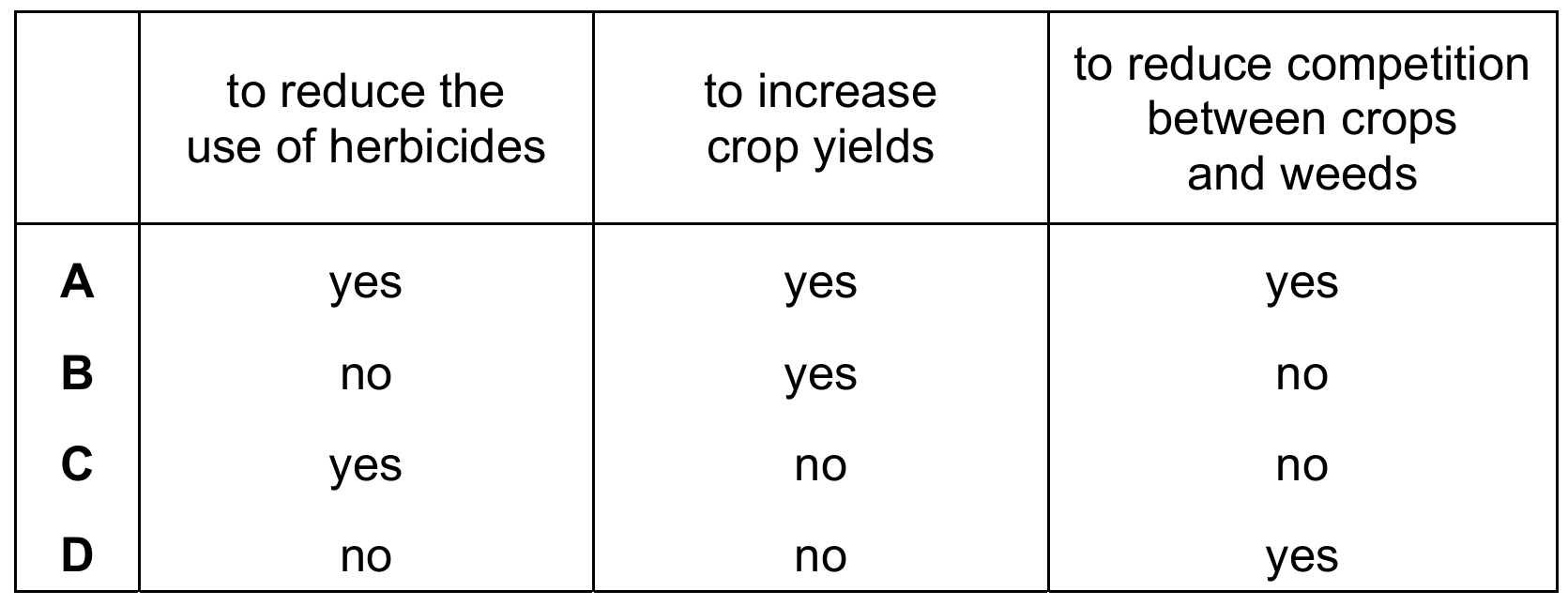Question
What are reasons for using chemical fertilisers in food production?

▶️ Answer/Explanation
Chemical fertilisers are primarily used to provide essential mineral ions like nitrates, phosphates, and potassium to the soil, which directly promotes plant growth and increases crop yields. However, they do not reduce the need for herbicides; in fact, fertilisers can encourage weed growth just as much as crop growth. Furthermore, fertilisers do not reduce competition with weeds; they may actually intensify it as both species vie for the extra nutrients. Therefore, only the yield increase is a valid primary reason for their use in this context.
✅ Answer: (B)
✅ Answer: (B)
Question
What is an advantage of large scale monocultures?
(A) increased biodiversity
(B) increased crop yield
(C) increased susceptibility to disease
(D) increased variation in the crop plant
(B) increased crop yield
(C) increased susceptibility to disease
(D) increased variation in the crop plant
▶️ Answer/Explanation
Large scale monoculture involves growing a single crop species over a vast area. This method allows farmers to use specialized machinery and standardized techniques, which significantly improves efficiency and leads to an increased crop yield. While it maximizes food production, it typically reduces biodiversity and increases the risk of total crop failure from a single disease. Since the plants are genetically similar, there is very little variation, making options A, C, and D disadvantages or incorrect descriptions rather than advantages.
✅ Answer: (B)
✅ Answer: (B)
Question
What is a disadvantage of large-scale monocultures of crop plants?
(A) a decrease in use of insecticides
(B) a decrease in fossil fuel emissions
(C) an increase in biodiversity
(D) an increase in risk of disease destroying the entire crop
(B) a decrease in fossil fuel emissions
(C) an increase in biodiversity
(D) an increase in risk of disease destroying the entire crop
▶️ Answer/Explanation
Monoculture involves growing a single species of crop over a large area, meaning all plants are genetically similar or identical. Because there is no genetic variation, if a specific pathogen or pest evolves to attack one plant, it can easily spread through the entire population. This lack of biological “roadblocks” significantly increases the risk of a total crop failure. Options A, B, and C are incorrect because monocultures typically require more insecticides, involve heavy machinery that increases emissions, and inherently decrease biodiversity.
✅ Answer: (D)
✅ Answer: (D)
